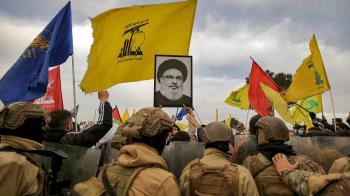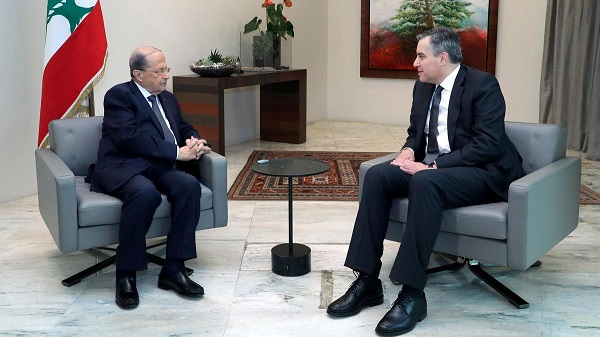Alwaght- The huge explosion that rocked Beirut port on August 14 and killed 190 people and injured about 6,500 others like a heavy earthquake shook the Lebanese politics and governance. The first victim to the development was certainly Prime Minister Hassan Diab who only a few days after the blast resigned from his post.
In the middle of the outcast political atmosphere caused by the incident, the political parties finally agreed on August 31 to name a new PM, Mustafa Adib, to form a new cabinet to address the crisis.
But just contrary to the initial optimism about the agreement on naming the new PM, the formation of a cabinet is meeting an impasse as the political parties differ over a set of issues. Adib at his meeting with President Michel Aoun on September 7 asked for more time to present his cabinet ministers to the parliament.
End of 15-day Macron deadline and government formation crisis
France emerged as the most important international actor in the political equations that followed the Beirut explosion. As an initial reaction, President Emmanuel Macron of France visited Beirut only two days after the blast and promised the Lebanese groups that if they make serious and real economic reforms, he will attract international support and management to get the already-suffering Lebanese economy back on the track.
But Macron’s involvement, or better to say meddling, in Lebanon was not limited to a few days that followed the explosion. After Adib was named a new PM, the French leader again visited Lebanon and set a deadline for Lebanon to form a new government. He set a 15-day deadline for Lebanon’s politicians, asking them to form a government suiting the new conditions of the country. The French plan seems to have met its failure as the ultimatum ended with while no government was formed in Lebanon. Discovering the root causes of failure to form a new cabinet is of significance.
Finance ministry and Hariri-led obstruction
Currently, the most serious obstacle ahead of the new government formation is the March 14 Alliance and part of the Christian community’s opposition to Hezbollah's presence and occupation of key roles by the Shiites in the new government. The reality is that presently there are negative positions on Hezbollah and Amal Movement’s stances in the country, among them those held by former PM Saad Hariri. Hariri, also heading Future Movement, argues that finance ministry and other ministerial posts are the exclusive right of no specific group and opposition to this stance would mean setting up roadblocks ahead of efforts to save Lebanon. The Progressive Socialist Party, led by Walid Jumblatt, and Lebanese Forces Party, led by Samir Geagea, share Hariri’s views as their parties are part of the March 14 Alliance.
On the contrary, Hezbollah and Amal Movement, led by parliament speaker Nabih Berri, warned that if the finance ministry is taken for the Shiites and Amal and Hezbollah is not allowed to name Shiite ministers, they will not participate in the government. During France-Hezbollah negotiations, the Shiite stances and demands have been stated clearly and to some degree Paris does not oppose Hezbollah and its role in the new government. So, the roots of the crisis should be traced out of the Lebanese borders.
US-Saudi secret hands behind the cabinet formation failure
The foundation of the new government formation in Lebanon is the Taif agreement that was signed in Saudi Arabia in 1989, ending a 15-year civil war. Since then, the power engineering and power structure in the country were based on the accord that is in turn based on ethno-sectarian sharing of the government posts. The PM post, according to the deal, is held by the Sunnis. The Christians hold the president post and the Shiites hold the parliament speaker post. In the past years, there have been agreements on ministerial posts, most important of which is giving the finance ministry to the Shiites.
But despite the French ambassador’s emphasis on agreement between the political parties and the Shiite camp to allow the latter to secure its ministerial rights in the cabinet, Saudi Arabia and the US are using all instruments at their disposal to block Hezbollah participation in the new government. Washington and Riyadh want to violate the Taif agreement and eliminate Hezbollah from the government illogically under the excuse of seeking technocratic cabinet formation. This comes while the only target in the new government formation crisis is the Shiites, while the Sunnis and Christians are cleared from the so-called demand for technocratic government.



























